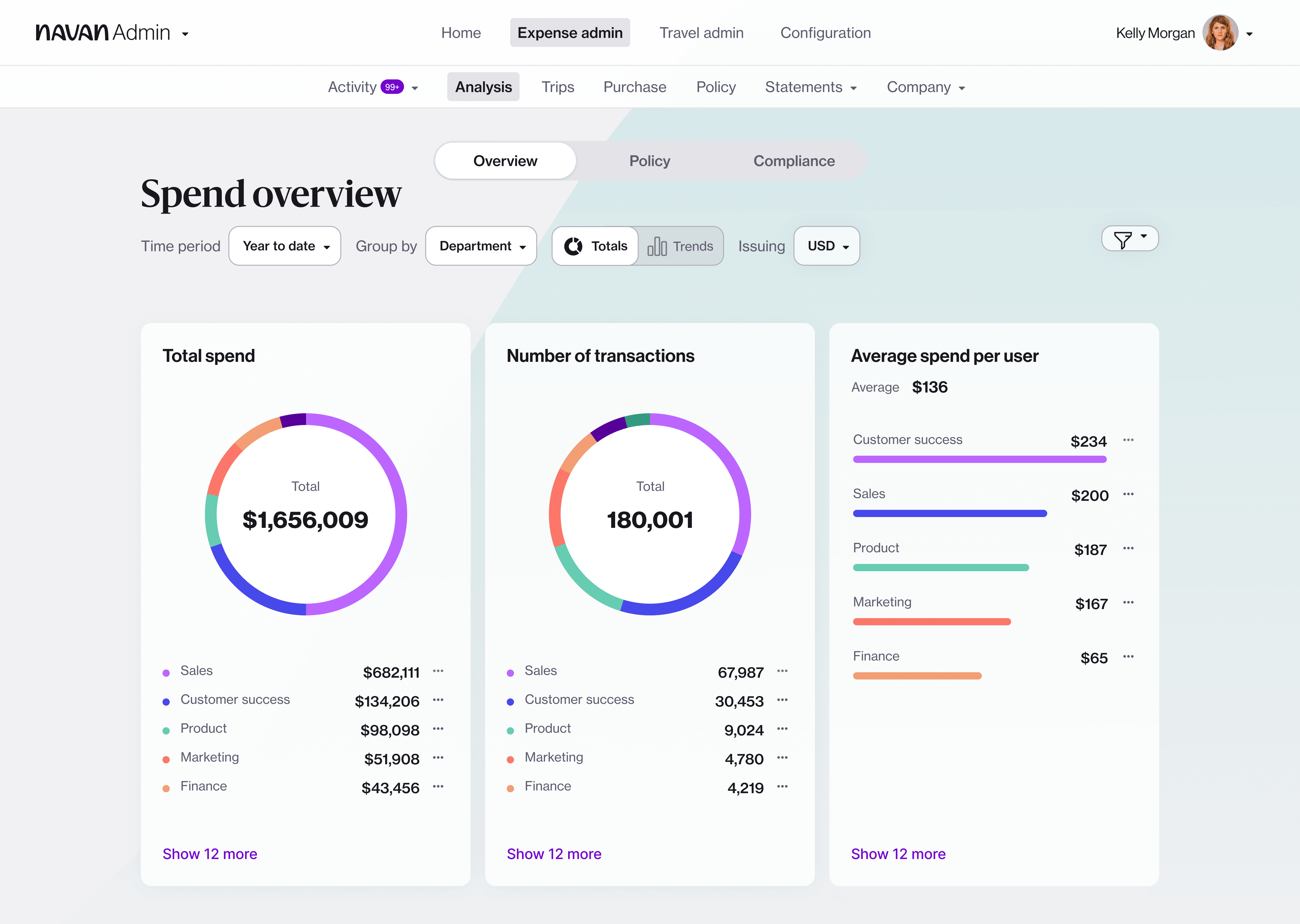6 Elements Small Businesses Need in a Travel Management Software

The need to manage travel is often a sign of a healthy, growing small business. The decision to implement a travel management software should be approached thoughtfully and strategically to ensure it fits with the current business needs—and that it is set up to scale as the small business grows.
Here are six features and functionalities that small businesses should consider when shopping for a travel management solution, along with key questions to ask along the way.
1. Implementation
To avoid getting stuck with a system that will take months to get up and running or that doesn’t fit in with your small business operations, it’s important to gauge system requirements, processes, and support. Before making any big commitments, consider simplicity, time to launch, and employee adoption.
- How long will the system take to get up and running?
- Can the system adapt to the workflows the small business has in place?
- Is there a reliable, responsive contact to help you with any setup questions?
- Will the system quickly deliver measurable ROI?
2. Proactive policy controls
A company’s travel policy shouldn’t live in a static, written document; it should integrate with your travel management system so that spend rules are enforced before they are broken. This solves two of the most common challenges: Getting employees to comply with policy rules and being able to keep the policy comprehensive and up to date.
- Can you easily set and apply policies that account for specific trips and travelers?
- Can the system automatically enforce compliance and flag out-of-policy expenses?
- Can the software calculate a fair market price depending on location, dates, and policy?
- Can office managers, executive assistants, or recruiters book and manage other employees' trips?
3. Inventory
Without access to the wide inventory that travelers are used to finding with commercial booking sites, your employees may become frustrated and turn elsewhere to book travel. Look for varied inventory from a wide variety of sources and intelligent tech that surfaces personalized results for your business travelers.
- Do you have access to a wide inventory across flights, hotels, cars, and rail?
- Does the system allow employees to book their own travel—all in one place?
- Can the system match supplier-direct pricing, discounted corporate rates, and consumer rates?
- Does the search technology take personal preferences, loyalty affiliations, and past booking behavior into account?

Above: The Navan Savings Dashboard is designed to provide clear and concise data on exactly where company money is being spent, where their traveler adoption and sentiment stands, and more.
4. Visibility and scalability
Effective corporate travel management starts with full visibility into your travel program, and the solution you choose should be capable of scaling alongside your growing small business.
- Can you track and visualize your company’s travel spend data across individuals, departments, and cost centers?
- Does the system offer visibility into your travelers’ upcoming and past trip itineraries?
- How does the system help you measure the effectiveness of your organization’s travel policy?
- Will the system support your business as it grows and scales?
- Is the information most important to your small business available?
5. Traveler support and safety
In today’s world, small businesses must have the right tools in place to ensure the safety and well-being of traveling employees. Duty of care refers to an organization's moral and legal obligation to care for employees while they're conducting business. Beyond full visibility into when and where employees are traveling, an effective travel management system should enable agile responses and assist companies with business travel continuity.
- Can you see a live traveler map?
- Can you communicate with traveling employees individually and en masse?
- Does the system aggregate crisis information?
- Are up-to-date travel restrictions and visa requirements available?
- Are self-service support tools—such as the ability to modify or cancel bookings—available?
- Will an employee be able to connect with live agent support when needed?
6. Traveler experience
Choosing a travel management software means little if employees don’t bother to use it in the first place. Today’s business travelers expect a consumer-friendly and intuitive experience when booking and expensing travel. If employees go rogue and do not adopt the platform, your small business loses visibility into what they book and spend—and the company misses getting the most out of its investment.
- How intuitive and consumer-friendly is the experience for travelers?
- Is the system offered as an easy-to-use mobile app?
- Are personalized booking options surfaced for each traveler?
- Are there integrations with traveler’s loyalty programs?
- What is the average adoption rate for the system?
Navan is the easiest-to-use travel management software solution on the market, according to verified user rankings in the most recent G2 Winter 2022 report. Its remarkably high usability score of 94, compared to the industry average of 88, is based on a high satisfaction rating and a strong market presence for users worldwide.
Even better: Navan ticks all the boxes above. Get up and running in just 5 mins today and find out how the travel management software can benefit your small business.
This content is for informational purposes only. It doesn't necessarily reflect the views of Navan and should not be construed as legal, tax, benefits, financial, accounting, or other advice. If you need specific advice for your business, please consult with an expert, as rules and regulations change regularly.
More content you might like
Take Travel and Expense Further with Navan
Move faster, stay compliant, and save smarter.